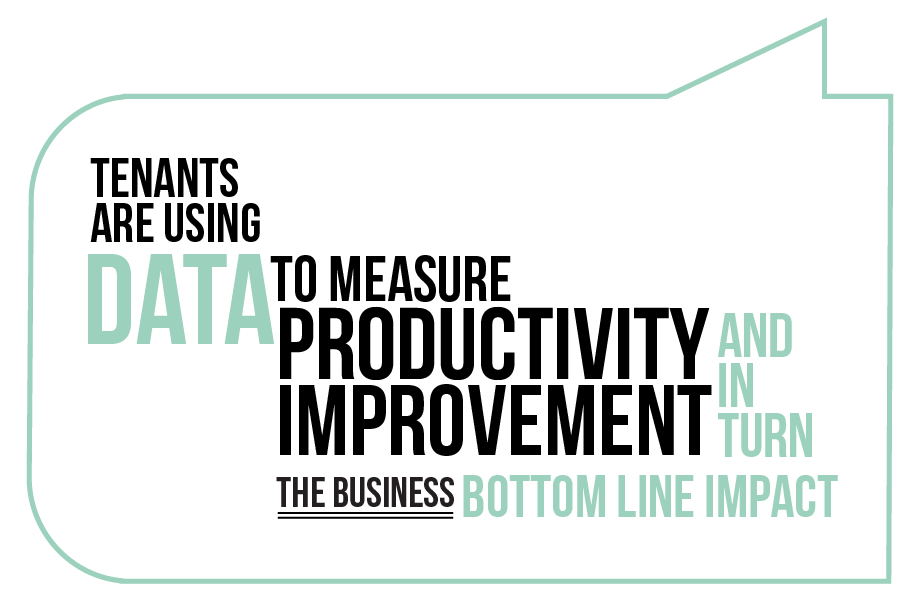Q&A with Rosemary and Roger
Rosemary and Roger jointly presented a session at the recent API National Conference on the tenant’s expectations of real estate to facilitate new ways of working, and the role of technology and performance data to manage workspace both efficiently and effectively in the age of mobility.
When they turned to the audience for Q&A there was a lot of interest in exploring the opportunity for new forms of partnership between those who develop, own and manage buildings and those who ultimately use them.
Here are 3 ways discussed to move your relationship from landlord to business partner:
1. Understand the building is only one part of the new workplace
The value of a leased space to a tenant is no longer just within its floorplate and not even restricted to the building. It is how it connects your tenant’s leased space internally with their people and externally with the wider community.
Rosemary referenced her experience with Campus MLC, GPT and University Campus work.
2. Recognise people are now leading the changes to real estate
There is a need to be creative, responsive and use data to track the use of space, so that as employee behaviour changes, tenants can change their leased space and offer an ongoing refresh of real estate to ensure their employees feel good about being a part of their business. The data of space utilisation allows people to direct real estate changes, putting the user in control of the future direction of their workplace.
Roger referenced his current work with Vodafone and QLD Housing and Public Works Department Accommodation Office, both putting in place workplace technology to provide live space utilisation statistics.
3. Base building data can inform and optimise productivity
Data integrated from the base building with tenant data can help tenants understand how their workplace impacts how their people feel and how they deliver their customer experience. Not only can workplace analytics measure the productivity improvement, but they can also then convert data to a bottom line impact. As tenants become more aware of the impact of indoor environment quality on business performance this integration of base building data will become more important. Roger referenced an ANZ case study and the development of the Incorp Portfolio Intelligence Tool (IPIT).




